Saving the North Atlantic right whale - North America
Don't fail our whaleNorth Atlantic right whales: terms and definitions
North Atlantic right whales: terms and definitions
What is on-demand fishing gear? What is considered on-demand lobster? Here are some of the common terms used by IFAW when discussing our campaign to save North Atlantic right whales from extinction—and their definitions. Since different organisations and stakeholders may use terms that differ from what we use at IFAW, we want to help clarify exactly what we mean.
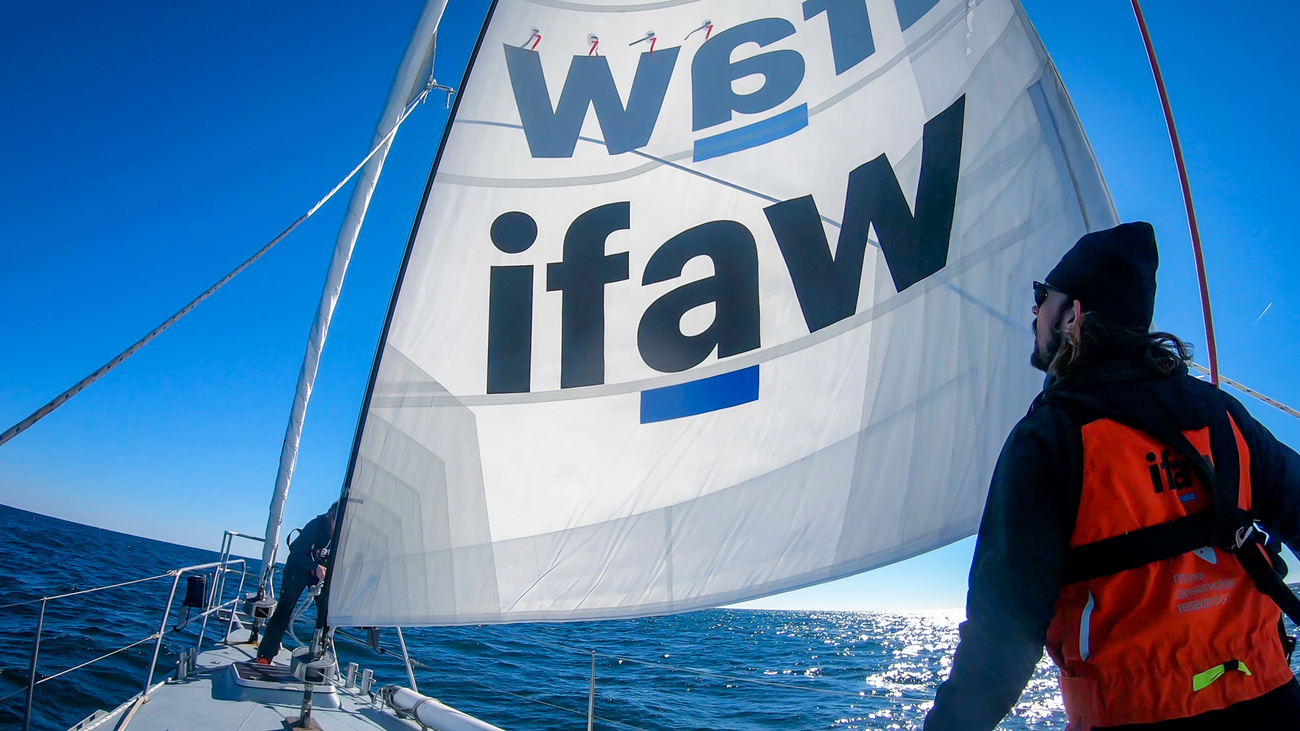
IFAW is an international organisation dedicated to conservation, wildlife rescue, and advocacy for the protection of animals. One of our key initiatives is saving the critically endangered North Atlantic right whale. We’ve commissioned research on this species and employ experts to perform necropsies on deceased whales, in addition to advocating for policy such as reduced vessel speeds. We also created the WhaleAlert app to encourage awareness of these whales among mariners and enable active reporting of the location and movement of individual whales.
Entanglement
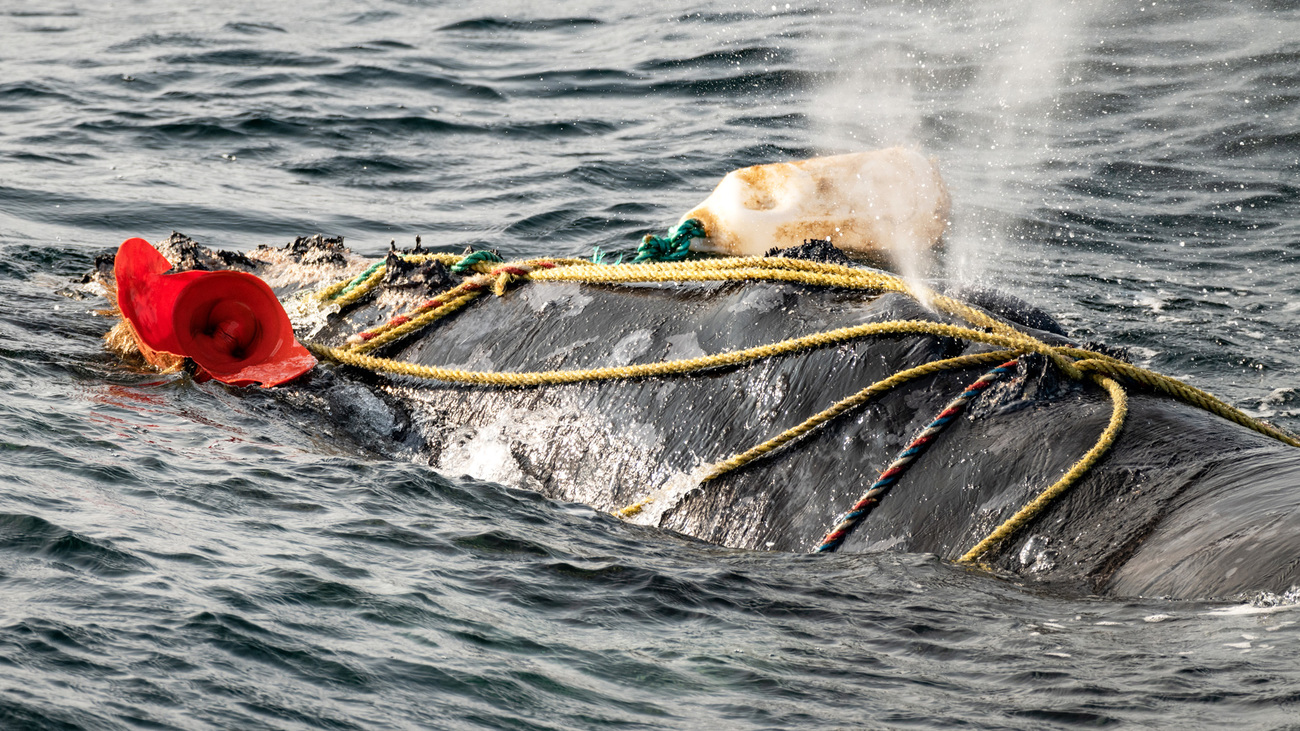
Entanglement describes when whales or other marine animals—including seals, dolphins, sharks, manatees, and sea turtles—become entangled in fishing gear. Ropes, lines, and chains can also cause entanglement. Oftentimes, animals like these are not the target of fishermen, but they become victims of bycatch (unintentional catching when fishermen are targeting other marine animals).
Entanglement doesn’t just restrict the movements of whales. It also causes extreme pain, infection, disease, and an inability to breed. Entanglement can lead to slow, painful deaths of North Atlantic right whales.
Entanglement in New England, Canadian, and southeastern US fisheries is one of the leading causes of injury and death for North Atlantic right whales and other marine animals. IFAW’s Marine Mammal Rescue team performs rapid field health assessments and treatments to improve the likelihood of these animals’ survival after their release.
On-demand fishing gear
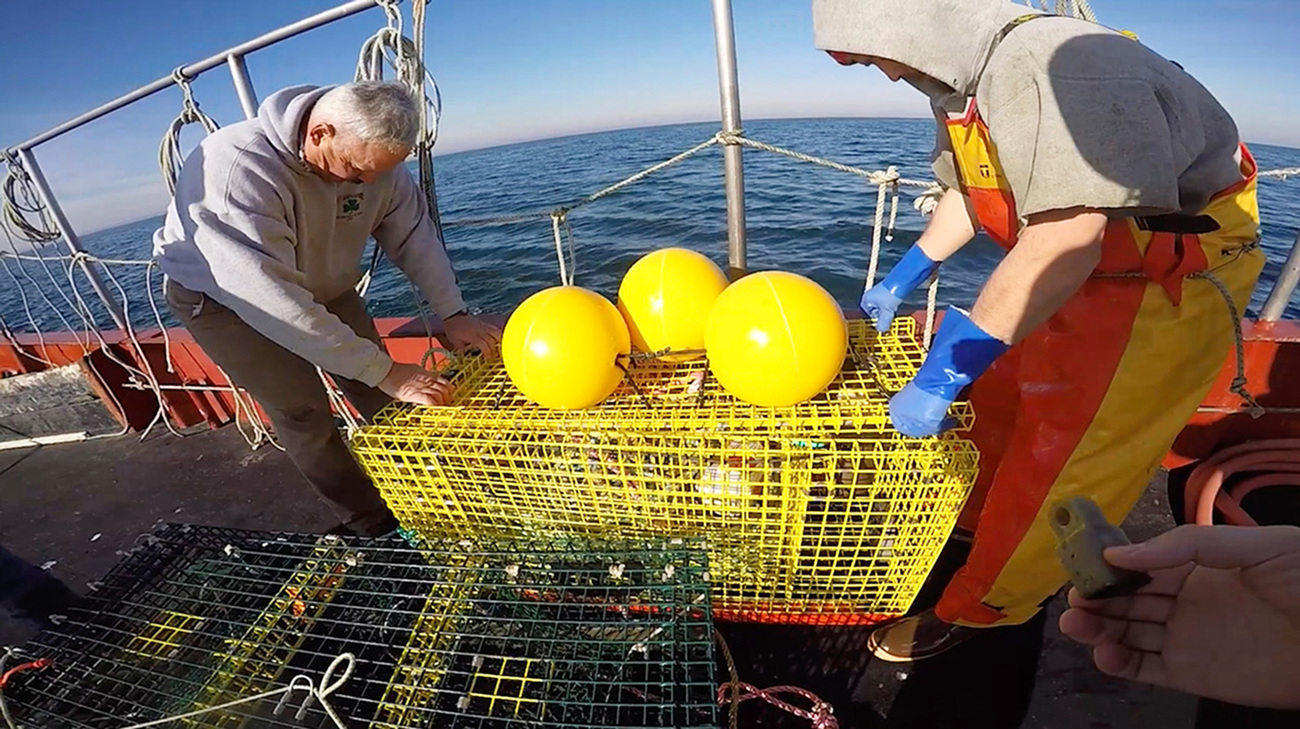
Currently, most lobster and snow crab fishing use trap/pot fishing gear. Trap/pot fishing gear consists of traps placed on the seafloor, connected to a vertical line attached to a buoy at the surface. An estimate of over one million of these vertical lines are used in areas where right whales migrate, calve, and feed, which is why entanglement is so common.
On-demand fishing gear—also known as ropeless, pop-up, or rope on-demand—is an alternative fishing gear system that isn’t attached to a buoy at the water’s surface, thereby greatly reducing the risk of entanglement. There are several models of on-demand fishing gear, including a pop-up buoy, inflatable lift bag, or buoyant spool.
IFAW has worked to secure government funding for on-demand fishing gear. We also work directly with fishermen, gear manufacturers, and state and federal regulatory officials. As a founding member of the Northeast Fisheries Science Center gear library, we enable field testing of on-demand fishing gear to move forward. The adoption of on-demand fishing gear would greatly reduce the risk of entanglement to the North Atlantic right whale while also sustaining the livelihoods of fishermen.
Vessel strikes
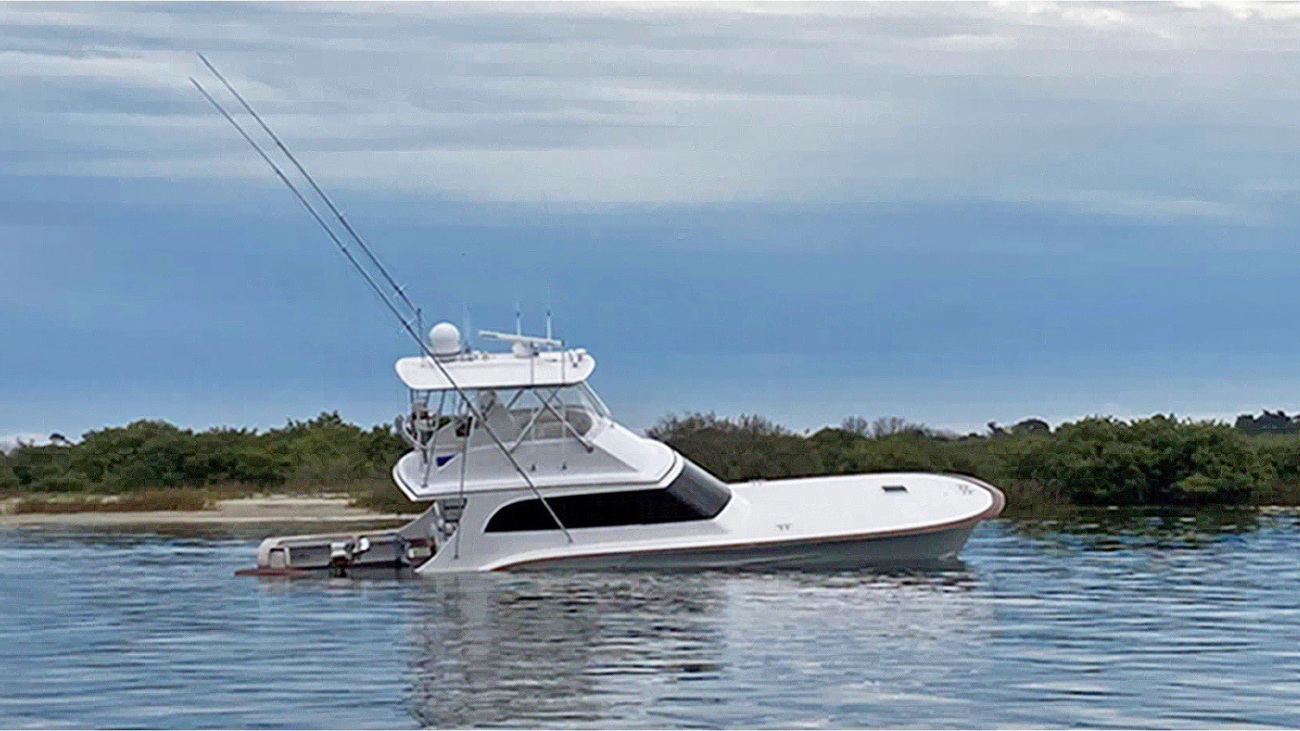
Also known as ship strikes, vessel strikes are collisions between any type of boat and marine animal, including whales, dolphins, sea turtles, fish, seals, and sea lions. These collisions occur with recreational and industrial vessels of all sizes, not just large ships.
Vessel strikes are one of the leading causes of injury and death for North Atlantic right whales, other marine mammals, and sea turtles. To protect right whales, stronger regulations must be enacted, as a vessel’s speed at the time of the strike directly correlates to the risk of mortality for the animal being struck. Management areas need to be expanded, vessels need to maintain a 10-knot speed limit during peak seasons in key areas, and compliance rates of existing speed rules need to increase—specifically in the critical birthing grounds of the southeast. Slowing down can significantly reduce the risk of vessel strikes as well as underwater noise pollution and emissions.
On-demand lobster and crab
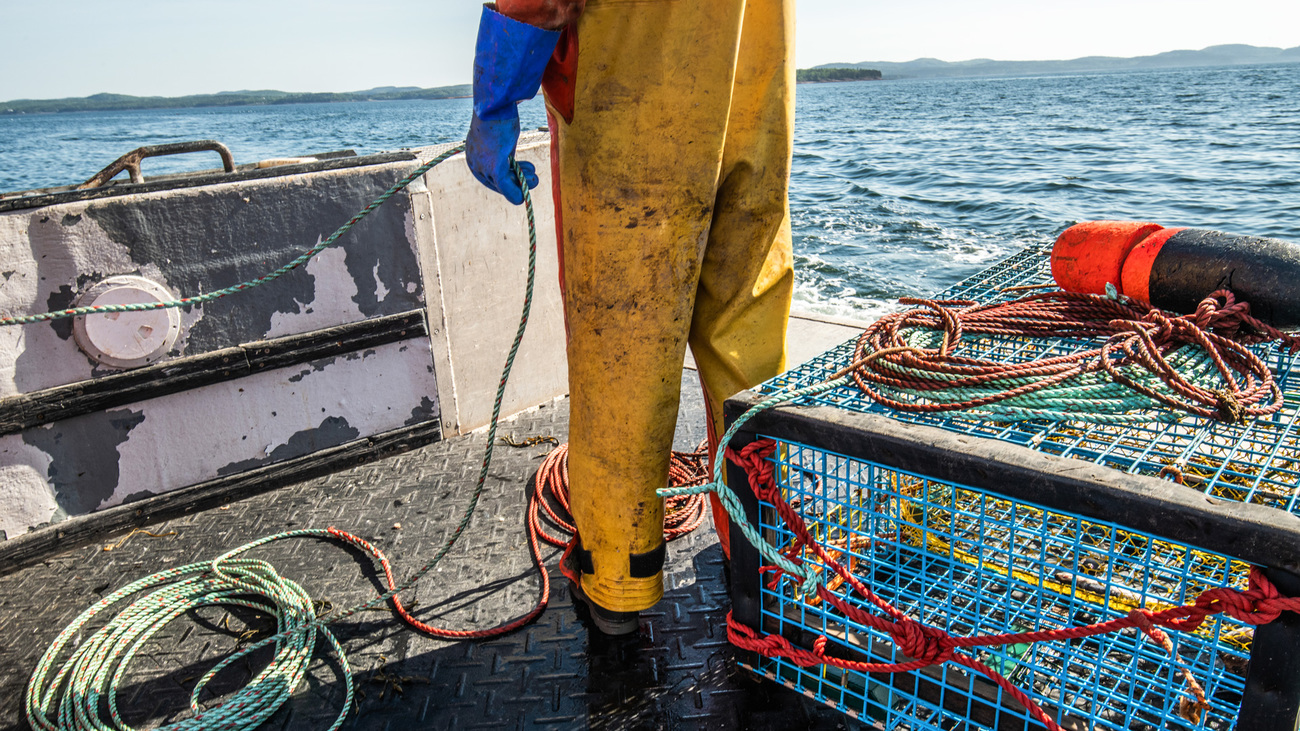
On-demand lobster and crab refers to lobster and crab that is caught using on-demand fishing gear, which poses less of a risk of entanglement for whales. It is also known as ropeless caught seafood.
A successful transition to on-demand fishing gear requires exploring the marketplace for sustainable, on-demand-caught seafood. IFAW recently partnered with FishWise, a sustainable seafood consultancy, to understand purchasers’ needs and demonstrate market viability of on-demand seafood. Research has revealed interest in sustainable seafood from lobster buyers, including retailers and restaurateurs.
Unusual mortality event
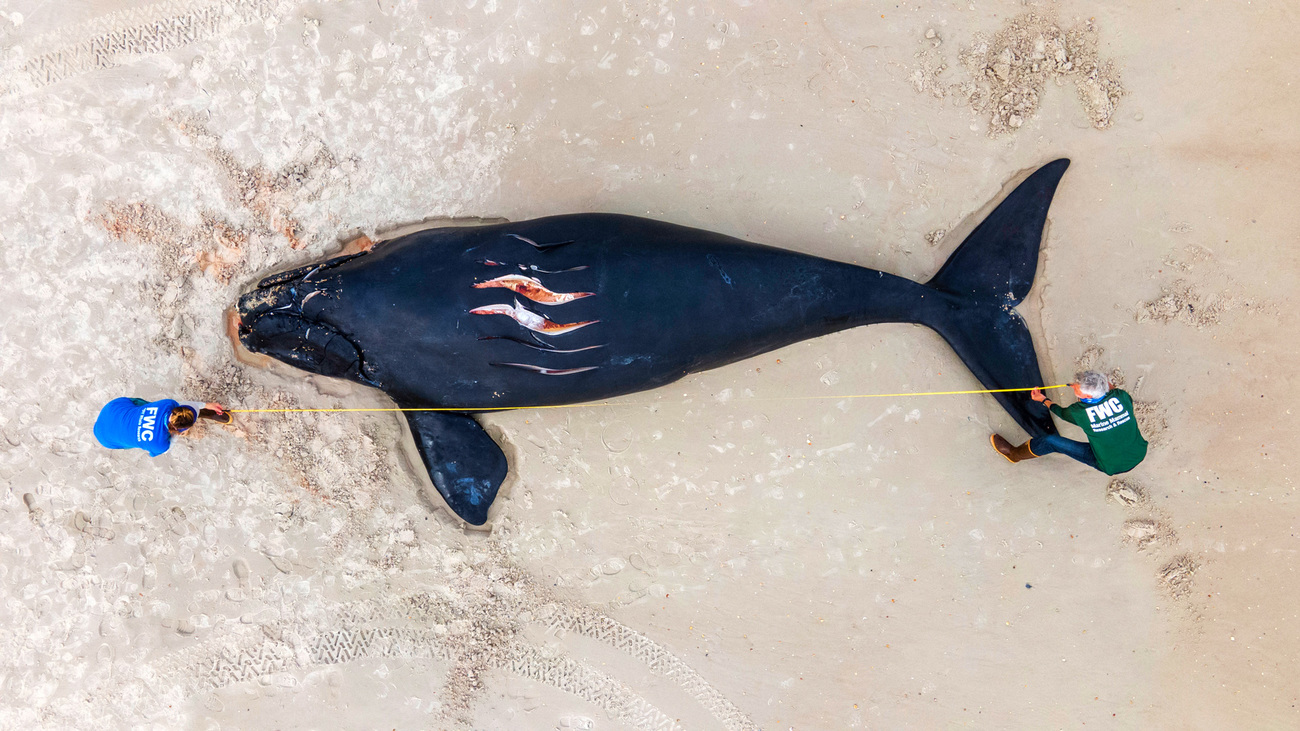
The National Oceanic and Atmospheric Administration (NOAA) officially declared an unusual mortality event (UME) for the North Atlantic right whale in 2017. The Marine Mammal Protection Act defines UMEs as unexpected mass die-offs of marine mammals.
The definition was recently updated and now includes serious injuries and morbidities. This means the dire nature of these events can be more accurately represented as we try to preserve these magnificent marine mammals.
More than 20% of the North Atlantic right whale’s population has been affected by death, injuries, and sickness since 2017. 139 counts of UME have been reported for this species since 2017, with 49 of those resulting from entrapment caused by industrial fishing practices.
To date there have been 41 mortalities, 34 serious injuries, and 65 morbidities reported for the North Atlantic right whale since 2017. These are numbers that we cannot afford given there are only around 350 North Atlantic right whales left and birth rates are not keeping pace with mortality.
Calving season
Calving season for the North Atlantic right whale begins in mid-November each year and lasts until around mid-April. Adult females are able to reproduce starting at around 10 years old and mothers will birth a single calf after roughly one year of gestation. North Atlantic right whale calves are typically 3.9 to 4.5 metres (13 to 15 feet) long and can weigh around 2,000 pounds.
Unfortunately, the North Atlantic right whale’s birthing rate has declined. Females would previously give birth every three years, but they now only give birth once every six to ten years. This decline is believed to be due to rising threats from climate change, entanglement, and other factors, which cause additional stress for these mammals.
The North Atlantic right whale is critically endangered with only about 350 individuals remaining. This means that every calving season matters. That’s why the IFAW tracks the births of new North Atlantic right whale calves every year.
Bioacoustics
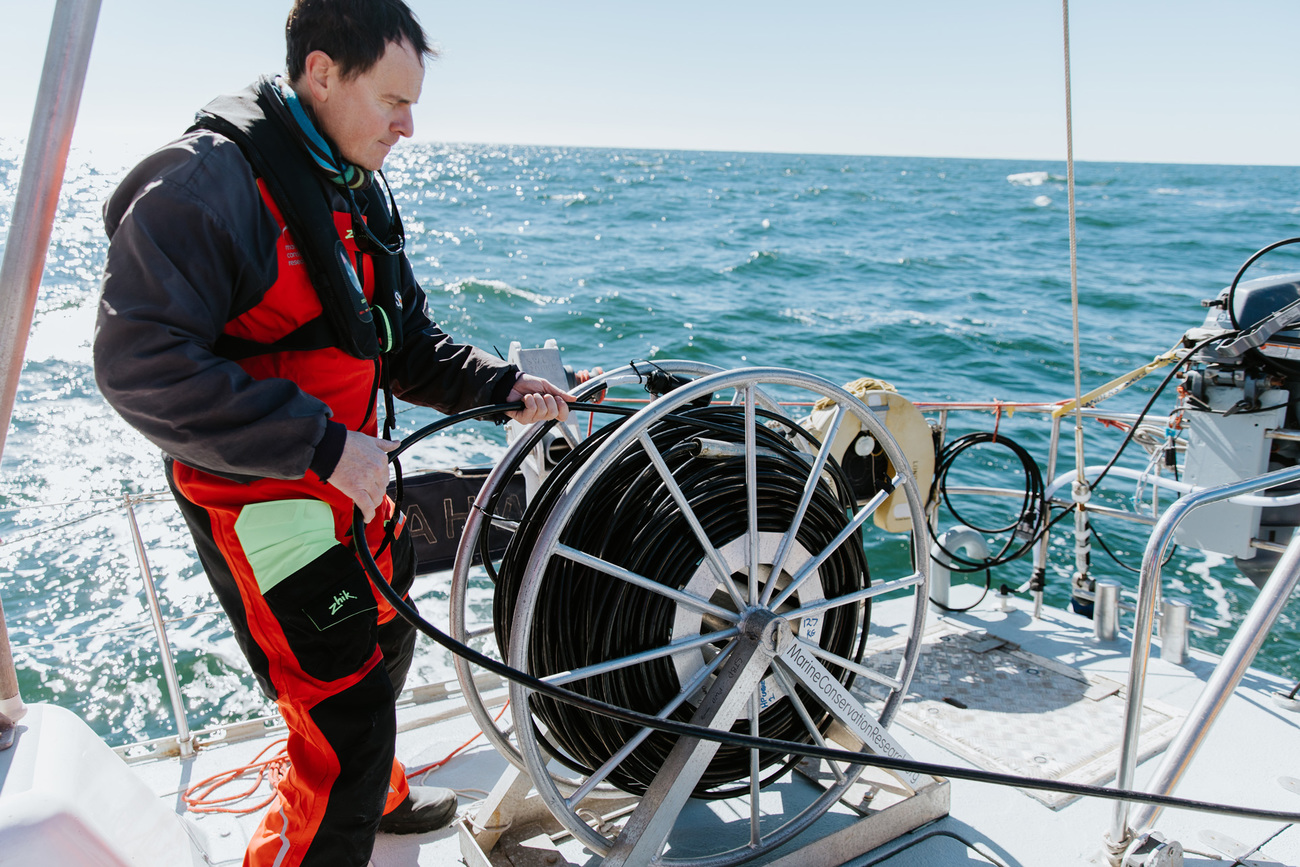
Bioacoustics is the science of sounds produced by or affecting living organisms. Bioacoustics are used to monitor North Atlantic right whale movements and trigger slow zones for vessels on the water. The sounds produced by these whales are monitored by devices like fixed buoys, gliders, and boats. Aboard IFAW’s Song of the Whale vessel, researchers used bioacoustics to detect vocalisations of North Atlantic right whales to become better informed of the whales’ locations. To hear the whales’ sounds, the researchers used hydrophones, which are very sensitive underwater microphones. Gaining insight into where the whales are allows for more effective protective measures to be put in place.
Ocean noise pollution
As whales use sound to navigate and communicate, it is no surprise that ocean noise pollution is a major issue for the North Atlantic right whale. Industries such as shipping, oil and gas, naval training, and construction are flooding the ocean with high levels of unnatural noise that make it difficult for marine mammals to communicate and navigate.
The increased noise contributes to rising stress levels for whales, causes hearing damage or loss of hearing sensitivity, and has disrupted mating patterns. Despite this, there are no international standards in place to regulate ocean noise. IFAW advocates for reducing shipping speeds and improving the design of large vessels to help reduce the amount of ocean noise pollution.
Critically endangered
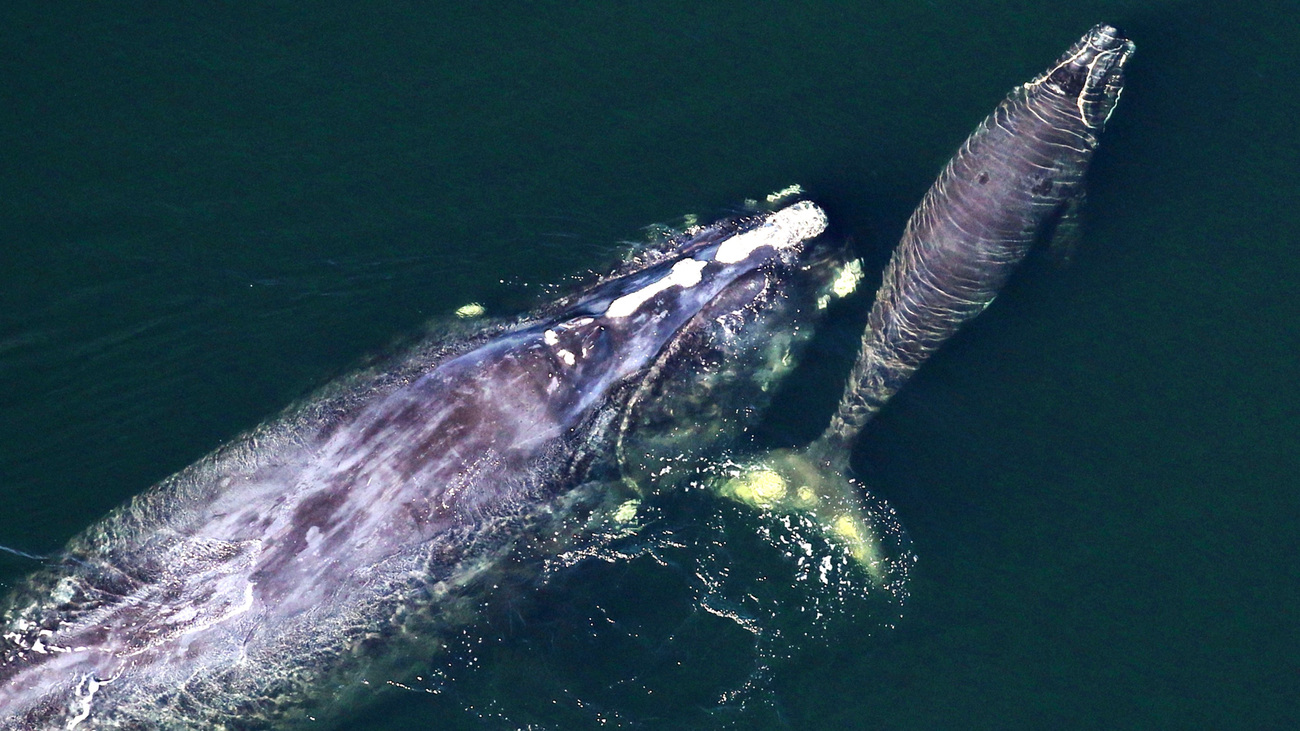
Critically endangered is a listing given by the IUCN to species facing an extremely high risk of extinction in the wild.
The North Atlantic right whale has been listed as critically endangered since 2020 and is one of the world’s most endangered marine mammals. Critically endangered is the last stage before becoming extinct in the wild followed by extinction. Since no right whales are kept in captivity, the North Atlantic right whale is on the brink of extinction.
Necropsies
While our main goal is to preserve and increase the North Atlantic right whale population, it’s important to understand the cause of death of any whale that doesn’t survive. To do this, we need to perform a necropsy on the animal to determine the cause of death or the extent of any disease they might have had.
Necropsies examine the animal’s body to help us improve our understanding of its anatomy and physiology. We can use this information to improve conservation efforts, identify transmissible diseases, and understand the effects of pharmaceutical products.
In the context of the North Atlantic right whale, we can use necropsies to identify any diseases, determine if stress was a factor, and check for signs of entanglement.
Callosities
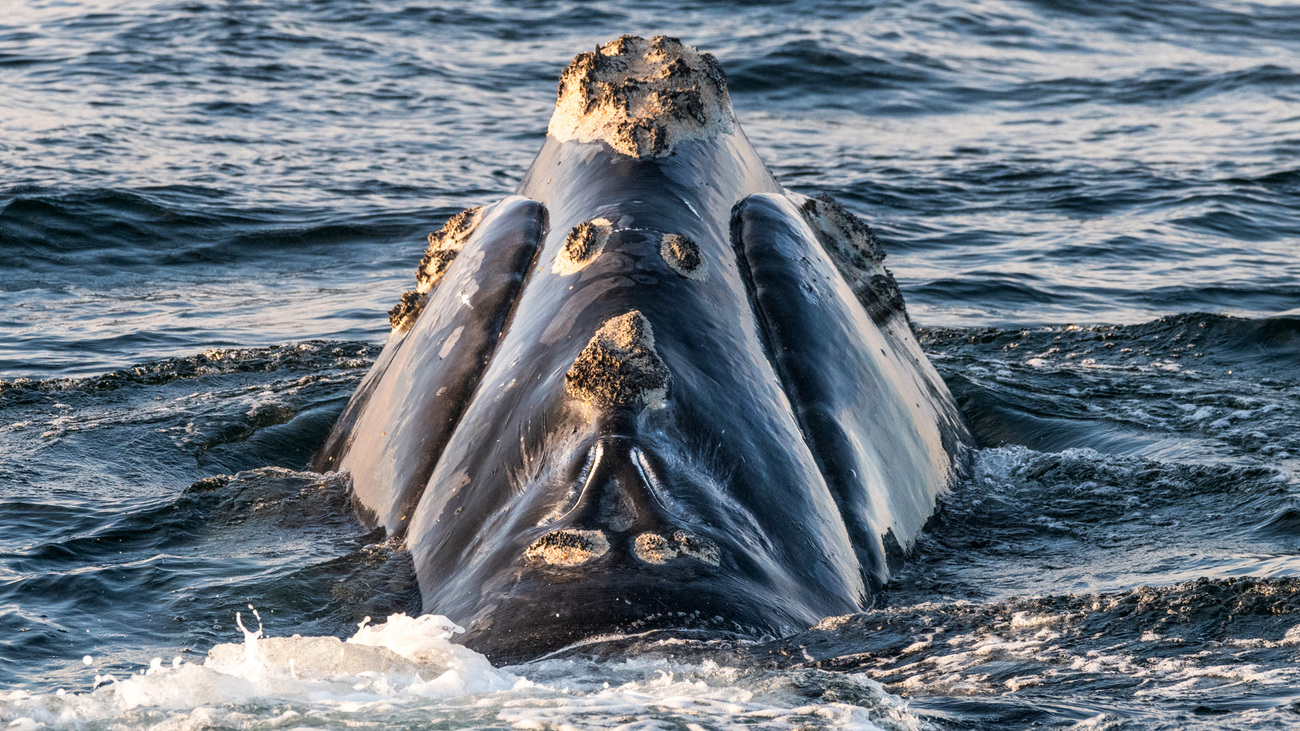
Callosities are white patches of rough skin that are colonised by whale lice (cyamids). Because they form unique patterns, callosities are used to identify and name whales, like a fingerprint. Identifying individual whales is vital for tracking the health of both the individuals and the entire population.
Dimethyl sulphide
North Atlantic right whales feed on copepods, a form of tiny marine zooplankton. These copepods feed on phytoplankton, which, when consumed, produce natural chemical compounds, including dimethyl sulphide. Scientists believe that whales use the odour produced by dimethyl sulphide to track down their prey.
This knowledge has become extremely useful when tracking the North Atlantic right whale because researchers can look for concentrations of dimethyl sulphide to locate these marine mammals. This helps conservationists monitor whale activity and improve conservation efforts. Tracking the whale’s food source also offers a much less invasive method of tracking compared to traditional tagging.
Baleen whale
The North Atlantic right whale is a baleen whale, which means it has baleen plates instead of teeth. The plates are made up of keratin—similar to fingernails and hooves—and hang in rows from each side of the mouth. Baleen plates are used to filter plankton from the water, allowing the whales to feed. Each individual plate can reach 5.2 metres (17 feet) long, with up to 400 plates along each row.
Related content
Our work can’t get done without you. Please give what you can to help animals thrive.